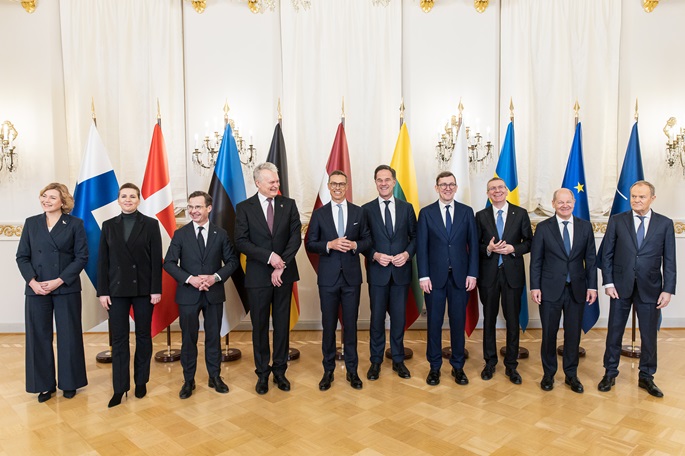NATO to strengthen security in Baltic Sea region
Published : 14 Jan 2025, 21:27
The Baltic Sea NATO Allies Summit held in Helsinki on Tuesday focused on strengthening the security of the Baltic Sea region, said an official press release.
President of Finland Alexander Stubb, together with Prime Minister of Estonia Kristen Michal hosted the summit where leaders of the NATO member states in the region vowed to strengthen its presence in the Baltic Sea through an enhanced vigilance activity called Baltic Sentry.
The Alliance’s actions will strengthen deterrence and aim to prevent damage to critical infrastructure. Surveillance will also be enhanced through technological innovation.
“We will respond decisively when critical infrastructure in our neighbourhood is at risk. Protecting it requires both national and international action. The NATO member states around the Baltic Sea share a unified view on this,” Stubb said.
NATO Secretary General Mark Rutte, Prime Minister of Denmark Mette Frederiksen, Federal Chancellor of Germany Olaf Scholz, President of Latvia Edgars Rinkēvičs, President of Lithuania Gitanas Nausėda, Prime Minister of Poland Donald Tusk, Prime Minister of Sweden Ulf Kristersson, Executive Vice-President of the European Commission Henna Virkkunen and Minister of Defence of Finland Antti Häkkänen took part in the summit among others.
A joint statement issued at the end of the meeting outlined measures to protect critical infrastructure and respond more effectively to the threat posed by the Russian shadow fleet.
NATO planned to deploy new technologies that will allow closer monitoring and surveillance of infrastructure and vessels suspected of being part of the shadow fleet. Cooperation will be carried out also with private companies.
“The measures now decided will strengthen deterrence in the Baltic Sea and raise the threshold for damaging infrastructure. Sabotage of critical underwater infrastructure must be considered as a form of hybrid influence," Stubb added.
Leaders of NATO countries in the Baltic Sea region have agreed to use all means available under international law to counter the threat posed by the shadow fleet.
The countries will increase surveillance of vessels suspected of being part of the shadow fleet.
They will also continue with the previously initiated inspections of ships’ insurance certificates to cover potential oil spills.
“The shadow fleet is not only a threat to critical infrastructure, but also to the environment. We need to make full use of the possibilities allowed by international law to take action against suspicious vessels,” said Stubb.


